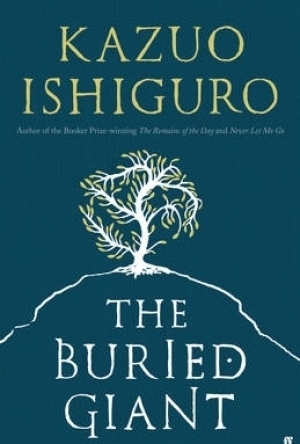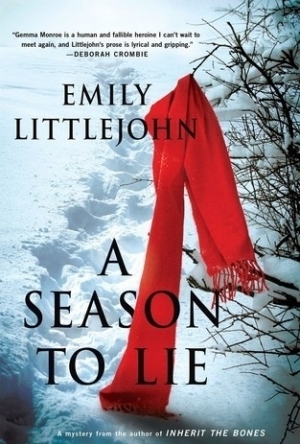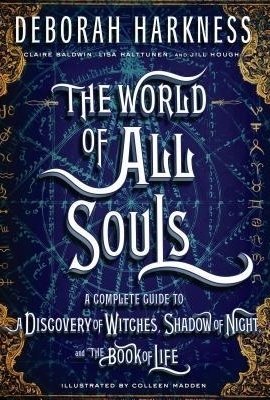
Medical Medium Life-Changing Foods
Book
The highly anticipated new release from the groundbreaking, New York Times best-selling author of...
Health food

Nimian Legends : BrightRidge HD
Games
App
FANTASY ADVENTURE IN A BEAUTIFUL OPEN WORLD WILDERNESS Run, swim and fly through glistening...

Calm Radio - Online streaming with relaxing music
Music and Entertainment
App
CalmRadio comes loaded with: 1 -Over 240 subscription channels** (no commercials) 2 -Over 190 free...

Mandala Coloring Pages for Adults
Entertainment and Games
App
Don't you sometimes hate that you are an adult? Try Mandala Coloring Pages - adult coloring book...

Meditation Studio
Health & Fitness and Lifestyle
App
⁃ Featured by Apple as "10 Best Apps of the Year” 2016 ⁃ Featured by TIME as "50 Best Apps of...
EmersonRose (320 KP) rated The Buried Giant in Books
Nov 20, 2019
It is hard to pinpoint a genre to which Kazuo Ishiguro sticks to as he writes in fantasy, science-fiction, and historical. It can be said that all of his novels have the feeling of being set in the past even when the time period is not explicitly described, but the core theme that connects all of his writing together is memory. In each of his stories, Ishiguro examines how people use memory, how memory affects people, and who we are with or without memory.
Ishiguro explores many different ways in which memory affects people throughout his books ranging from memory loss to dream like memory distortion. In his books Never Let Me Go and The Remains of the Day the stories are told by narrators looking back at crucial moments in their lives. In letting us know that they are remembering their own pasts they admit that they are saying their perspective and their memory might be lacking. In this way letting the reader know that they are unreliable narrators. In The Remains of the Day the narrator, the butler Mr. Stevens decides to go on a journey to visit an old friend and along the way shows his unreliability in several ways. First in acknowledging how memory can change and fade over time.
“It occurs to me that elsewhere in attempting to gather such recollections, I may well have asserted that this memory derived from the minute immediately after Miss Kenton receiving news of her aunt’s death….But now, having thought further, I believed I may have been a little confused about this matter; that in fact, this fragment of memory derives from events that took place on an evening at least a few months after the death of Miss Kenton’s aunt” (212).
In this way, Steven’s is acknowledging human error which both shows his unreliability but gives a level of trust in the acknowledgment that he is doing his best to be truthful. This, however, is challenged because Steven’s informs us that he lies, at the very least through omission, to other characters. A clear case of this is when he allows himself to be considered a gentleman rather than a butler on several occasions throughout his journey. This becomes complex because he is allowing the reader in on the truth, but the very fact of admitting that he can lie further reveals his unreliability.
In Ishiguro’s most recent book, The Buried Giant, he looks at memory in a way that is similar to these previous stories but takes a new approach. His central two characters in this book, Axle, and Beatrice are an elderly couple setting out on a journey with almost no memory of who they are. Throughout the story, they remember or think they remember pieces of their pasts and in the process making them question who they really are. This uncertainty in themselves creates interesting questions of whether or not they want to remember their lives if they are happier not knowing, and if they can continue to live their lives the way they are with their new/old information?
“Yet are you so certain, good mistress, you wish to be free of this mist? Is it not better some things remain hidden from our minds?”
“It may be for some, father, but not for us. Axl and I wish to have again the happy moments we shared together. To be robbed of them is as if a thief came in the night and took what’s most precious from us.”
“Yet the mist covers all memories, the bad as well as the good. Isn’t that so, mistress?”
“We’ll have the bad ones come back too, even if they make us weep or shake with anger. For isn’t it the life we’ve shared?” (172).
In some of Ishiguro’s other work, he chooses to explore memory through the lens of a dreamlike state or surreal views, such as his short story A Village After Dark and the novel The Unconsoled. In these stories, the narrator enters into a new place and finds that they have slowly emerging memories connected to the places and people they meet. The Unconsoled creates a strange dynamic where the lead character Mr. Ryder has never been to this town before but finds himself confronted by childhood acquaintances as well as meeting a woman and child who treat him like husband and father and memories that support this begin to come back to him. In an interview Ishiguro did on the book in 1995, he summarizes the story as “an anxiety dream” as Mr. Ryder continually finds himself confronted with the expectation of him without being told anything in advance. At the beginning of the story, Mr. Ryder arrives at his hotel knowing that he will be playing at a concert in few days and is told he has a busy schedule up till then. At this point in the story, the anxiety dream state sets in Mr. Ryder continuously finds himself late to engagements, leaving people behind by accident and being dragged around town. As the story progresses, Mr. Ryder begins to have memories of a past associated with some of the people he has met, despite being introduced as completely new to the town. Some of these can be explained by the fact that as a reader we are dropped into a story after it has started but the memories of these instances only come back to Ryder after he has been told things have happened. This means that throughout the story it impossible to know whether or not the narrator has forgotten and is remembering or if the town is merely a dream limbo and nothing he is being told is real, to begin with.
Whether taking the more fantastical approach or the those that fall closer to realism, Ishiguro’s play with memory remains relatable to the readers. Each journey Ishiguro writes is designed to tackle something different about memory. The stories ask us questions about what memory and how much it affects who we are and our ability to live in our world. From whether or not we can know who we are without memory to how trustworthy our memories actually are. These questions, however fantastically asked, offer something to the reader that they can relate to. For memory is almost a fanatical force on its own that we all share and try to understand. It can play with us when we take it for granted and offer vulnerability and connection when shared with others. Ishiguro delves into these ideas in each of his works, ever exploring its uncertainty and power.
Kristy H (1252 KP) rated A Season to Lie in Books
Jan 10, 2018
I very much enjoyed Emily Littlejohn's first Gemma Monroe novel, Inherit the Bones, and was really excited to see the second one come out. It's always exciting to see a realistic female detective portrayed in literature. Gemma is much the same in this second foray--practical and levelheaded. She's back to work after the birth of her daughter, Grace, with whom she was pregnant in BONES. The novel does a great job of portraying a working, breastfeeding mom and giving us a realistic look at the struggles a mom faces when juggling work and motherhood. As a mother who went back to work when her own daughters were young and faced a harried schedule, I really appreciated that about this novel.
Thankfully, I did not encounter a dead body on my first day back, just a lot of meetings! Gemma, of course, takes it all in stride, as she cannot help but enjoy the thrill of the hunt. The novel gives us a lot of reflection and thoughts from Gemma. I'd call this one a bit of a slow-burner. I read it while busy and it took me nearly a week. The storyline wasn't one that had me itching to pick it up and see what happens--there's several divergent plot lines and none feel particularly urgent or overly suspenseful.
A pervasive weariness almost overlays the pages--a reflection of the weather (think snow, all the time) and Gemma's general fatigue as she faces returning to work while juggling having a tiny baby at home. That's not to say the book isn't interesting, because it certainly is. Especially when the case starts to intersect with Gemma and Finn's personal lives--which isn't surprising, considering they are small town police officers/detectives. The Grimm storyline is a bit of a bizarre concept and the resolution, while a total surprise to me, was a bit anticlimactic. A few of the plot threads do tie up a little too easily, but the main case befuddled me throughout the entire novel, so kudos to Littlejohn for that. I had some suspicions, but she convinced me to cast them aside, so I'm always pleased when that happens.
What I enjoyed most about this book was Gemma herself. It's probably obvious that I identify with and like her--I enjoy her steadfast character, even though she also has bouts of anxiety and uncertain times. Seeing her as both a mom and working detective was great. This being a second novel, we're gaining enough recurring characters (Gemma, Finn, Gemma's partner/quasi-husband, Brody, Gemma's grandparents, a few other townspeople) that you recognize them and their quirks. Another plotline is left a bit unresolved, leading me to hope that a third Gemma novel is in the works. Even though this wasn't the most exciting of all mysteries, I found it solid and enjoyable, much like its protagonist. I'd certainly read any Gemma Monroe novel I could get my hands on. 3.5+ stars.
I received a copy of this novel from the publisher and Netgalley (thank you!) in return for an unbiased review.
Smashbomb (4687 KP) created a post in Smashbomb AMA
Mar 26, 2019 (Updated Mar 26, 2019)
Like its predecessors before it, The Book of Life is a well-written book that causes emotions to rise to the surface. Harkness is able to cause the feeling of urgency making the reader want to read faster because it could save a life or change a policy that is in place and needs to be changed. I find this to be surprising and often a bit anxiety ridden because I had grown attached to the characters and hated to feel like danger was around the corner and nothing was going to stop it. And though the book was fast paced and kept me turning pages, I find that I wish a little more time would have been given to some characters in the Congregation. I feel it would have helped the story out a bit, though it would have probably added more pages to the already 500+ page book.
I really enjoyed how the character grew and thought that it did finish the story up with a nice red bow. I could see smaller novels or other adventures the main characters could embark on, but even without it I don’t mind. It was very entertaining. It brought up some major questions into view on survival of creature of all kinds and even answered questions on how vampires, witches and daemons are connected in this storyline. The ideas that The Book of Life present to the reader, helps them appreciate life as it is and really begin to gain some prespective of that of what we question more often than not. Even though it is fiction and these creatures don’t exist, you once again wonder if maybe it could happen. And if it did happen and was happening around us now, would it be like what this delicious story had us to see, or would it be something else.
Though the book kept me thinking and exploring ideas that stemmed off its vision, I find that I am questioning a few smaller details of the characters, even though it had revealed some of those answers, I felt like it could’ve been elaborated on to give the reader a better idea on how the main characters came up with this solution or explanation. Even with the few critiques I have mention, I still rather enjoyed the book and found that only after putting a ton of deep thought into it did I find any issues to begin with.
I would recommend The Book of Life to anyone who has read the first two books in the trilogy. It would create a ton of confusion if you just picked this book up and started reading it without the prior knowledge from the first two books in the All Souls Trilogy. I would rate this book 3 stars out of 4 stars.



